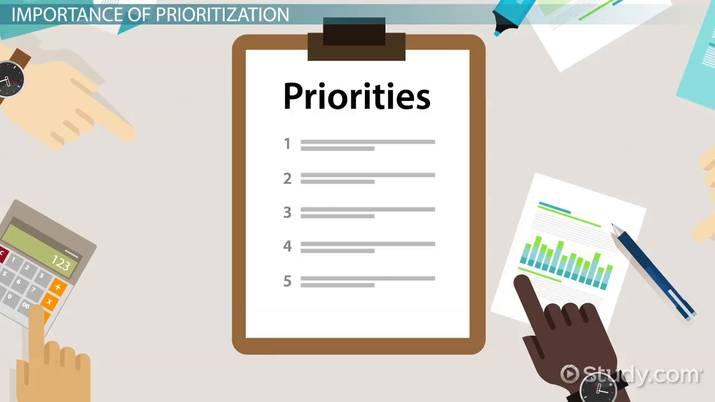In today’s fast-paced world, the idea of investing tends to conjure images of stocks, real estate, and retirement funds. But there’s another crucial investment that often gets overlooked: mental health. While self-care might seem like just a trendy buzzword, it actually holds significant financial benefits. Think of it this way: maintaining your mental well-being can lead to greater productivity, fewer medical expenses, and an overall higher quality of life—all of which can positively impact your bank account. So, grab a cup of tea, get comfy, and let’s dive into why taking care of your mind might just be the smartest financial move you make.
Understanding the Link Between Mental Wellness and Financial Stability
It’s amazing how closely our mental health and financial well-being are connected. When we feel stressed or anxious, it can seep into our financial decisions, leading to impulsive spending, missed payments, or difficulty budgeting. By focusing on your mental wellness through self-care practices, such as regular exercise, meditation, and healthy eating, you can create a more positive mindset. This shift can help you make better financial choices, reducing the overall stress in your life.
Here are some self-care actions that can boost your financial stability:
- Exercise regularly: Boosts mood and energy, leading to more productive workdays.
- Meditate: Improves focus and clarity, aiding in better financial planning.
- Healthy eating: Enhances overall well-being, lowering medical costs long-term.
- Sleep well: Promotes brain function and decision-making capabilities.
| Self-Care Activity | Financial Benefit |
|---|---|
| Exercise | Higher productivity and fewer medical bills |
| Meditation | Better focus on budgeting |
| Healthy Eating | Reduced healthcare costs |
| Proper Sleep | Improved decision-making |

Prioritizing Self-Care Without Breaking the Bank
Taking care of yourself doesn’t have to empty your wallet. There are simple, cost-effective activities that can significantly enhance your well-being. Here are a few ideas to get you started:
- Meditation: Apps like Calm and Headspace offer free trials.
- Exercise: YouTube has thousands of free workout videos.
- Sleep: Prioritizing good sleep hygiene doesn’t cost a thing.
- Reading: Online libraries and free e-books are great resources.
Cutting down on stress-related expenses is another perk of self-care. When you consistently invest in your mental health, you might find fewer doctor visits and less need for costly stress-relief purchases. Check out this example of potential savings:
| Expense | Without Self-Care | With Self-Care |
|---|---|---|
| Medical Bills | $300/month | $150/month |
| Stress Purchases | $100/month | $40/month |

Smart Budgeting Tips for Mental Health Investment
When it comes to caring for your mind, smart budgeting can make a big difference. Think about setting aside a portion of your income specifically for mental health activities. Whether it’s therapy sessions, meditation apps, or even a monthly massage, plan your budget to accommodate these essentials. A great way to keep track is by creating separate categories in your budgeting app or spreadsheet. This will help you stay on track without feeling the guilt of overspending. Additionally, exploring free or low-cost mental health resources such as community support groups or online forums can also be beneficial.
Another approach to smart budgeting for mental health is to invest in activities that bring you joy and reduce stress. Consider allocating funds for hobbies or activities that make you feel good, such as gardening, art supplies, or exercise classes. It’s also a good idea to look for discounts or memberships that offer reduced rates for these activities. Here’s a quick guide to help you get started:
- Therapy: Consider online options that may be more affordable.
- Self-Care Products: Buy in bulk or during sales.
- Meditation Apps: Use free trials or promotional offers.
- Exercise: Opt for community center classes or home workout programs.
| Activity | Average Monthly Cost | Affordable Alternatives |
|---|---|---|
| Therapy Sessions | $150 | Online Therapy ($50/mo) |
| Massage | $70 | Massage Chair Rental ($20/mo) |
| Meditation Apps | $10 | Free Apps or Community Classes |
By strategically allocating your funds, you can make a significant impact on your mental well-being without breaking the bank. Remember, the goal is to find a balance that fits your financial situation while enhancing your mental health.

Long-Term Financial Gains from Regular Mental Health Check-Ins
Making mental health check-ins a regular part of your routine can lead to substantial financial savings over time. When you take care of your mental well-being, you’re less likely to face expensive medical treatments for issues that could have been prevented. Mental health challenges often correlate with other health problems, which means taking care of your mind can also benefit your body, reducing overall healthcare costs. Additionally, improved mental health can lead to better job performance and higher productivity, which are key factors in securing promotions and salary increases.
Here are some key financial benefits you can gain from regular mental health check-ins:
- Lower healthcare costs
- Increased productivity at work
- Higher likelihood of earning promotions
- Reduced dependency on medication
- Better management of work-life balance
| Benefit | Potential Savings |
|---|---|
| Lower medical bills | $1,000/year |
| Increased productivity | $2,500/year |
| Promotion opportunities | $5,000/year |
Q&A
### Q&A:
Q: What exactly does “investing in your mental health” mean?
A: Investing in your mental health means dedicating time, effort, and sometimes money towards practices and activities that enhance your mental and emotional well-being. It can range from therapy sessions to mindfulness practices, engaging in hobbies, or simply taking regular breaks to relax.
Q: Why should I spend money on self-care when I have other financial priorities?
A: While it might seem like an extra expense, investing in self-care can actually save you money in the long run. Good mental health can reduce the likelihood of stress-related illnesses, improve productivity, and reduce the chances of workplace burnout, which can lead to fewer missed work days and lower healthcare costs.
Q: Can mental health really impact my work performance?
A: Absolutely. Mental health has a direct influence on your focus, decision-making skills, and overall productivity. Managing stress and maintaining good mental health can make you more efficient and creative in your work, which could open doors to promotions and raises.
Q: Do you have any tips for affordable ways to invest in my mental health?
A: Definitely! You don’t have to break the bank to take care of yourself. Activities like regular exercise, spending time in nature, practicing mindfulness or meditation, and connecting with loved ones can significantly boost your mental well-being. There are also many free or low-cost apps and online resources available for mental health support.
Q: How does self-care translate to financial benefits?
A: By maintaining good mental health through self-care, you’re likely to experience fewer medical costs due to stress-related conditions, have a more stable and engaging work life, and possibly increase your earning potential by being more productive and focused. Essentially, you’re investing in your future financial stability by being proactive today.
Q: What are some common self-care practices that people can start today?
A: Some easy self-care practices include daily exercise, setting boundaries for work hours, practicing mindfulness or meditation, engaging in hobbies, getting enough sleep, and seeking social support. These can help build a foundation for lasting mental health benefits.
Q: Is professional help worth the investment if I’m feeling mentally overwhelmed?
A: Yes, seeking professional help can be a crucial step in managing mental health issues effectively. Therapy or counseling can offer personalized strategies and support that can make a significant difference. Think of it as an investment in your long-term happiness and productivity.
Q: How can employers support their team’s mental health?
A: Employers can play a big role by providing mental health resources, encouraging a healthy work-life balance, offering flexible work options, and creating a supportive work environment. Investing in employee mental health can lead to a more loyal, productive, and motivated workforce.
Q: What’s the overall takeaway about the financial benefits of self-care?
A: The bottom line is that investing in your mental health is not just about feeling better—it’s also about creating a stable, productive, and financially sound future. Prioritizing self-care can lead to tangible financial benefits by improving your health, work performance, and overall quality of life.
Future Outlook
And that wraps up our look into the financial perks of investing in your mental health. From reducing healthcare costs to boosting productivity, it’s clear that self-care isn’t just a feel-good trend—it’s a savvy financial move. So, next time you’re weighing whether to take that mental health day or invest in a hobby that brings you joy, remember: you’re not just spending, you’re investing in a healthier, wealthier future. Till next time, take care of yourself!



[…] Great question! For millennials, health insurance is crucial because it helps cover medical expenses while offering peace of mind. Given our generation’s hustle culture and gig economy jobs, […]
[…] History: Do you pay your bills on time? Even one missed payment can impact your […]
[…] Anytime! For more detailed advice, consider talking to a financial advisor who can offer personalized strategies. And stay updated with trustworthy financial news sources. The more you know, the better prepared […]